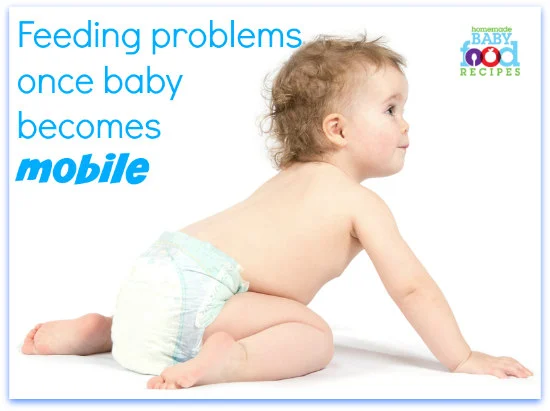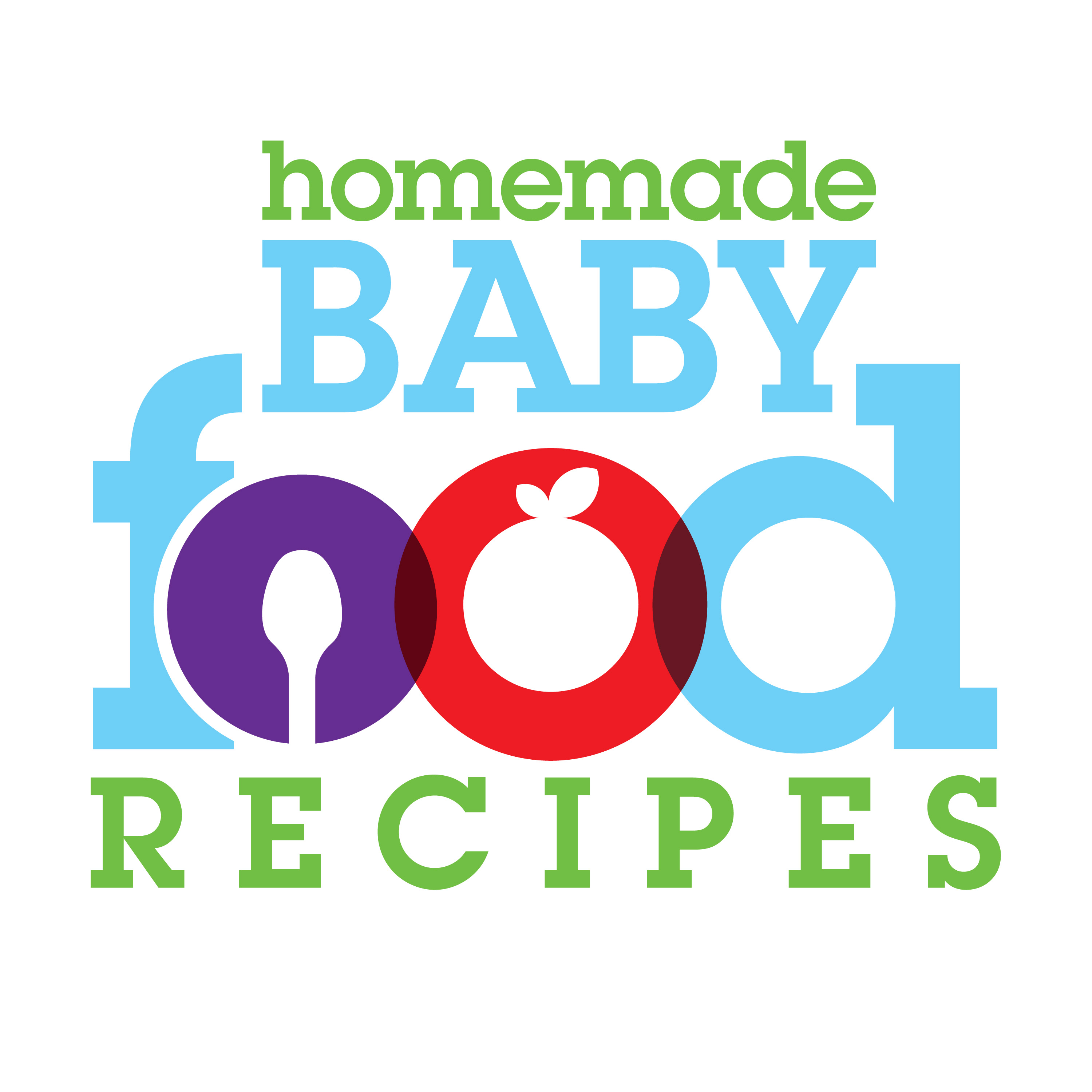All parents are thrilled when their babies take their first steps! But many are less thrilled to discover that their little ones become less ‘cooperative’ at the dinner table at around the same stage!

Mealtimes can be challenging when baby finds his feet!
Slow weight gain
When your baby begins to walk (or even crawl), you may notice that he gains weight more slowly than before. This is not at all unusual – after all, he’s burning off extra calories with this newly-discovered form of exercise!
But another factor that may contribute to a reduced rate of weight gain is a reduced intake of food! In fact, we receive more emails about feeding problems in babies at the ‘early walking’ stage than at any other time!
- Your baby is probably gaining a better sense of his own independence. He may begin to assert this independence at the dinner table by seeking more control over what he eats.
- In your baby’s eyes, walking and exploring are fun – being confined to a highchair most certainly isn’t!
- Many parents notice that – when their babies acquire a new skill – previously learned skills tend to go by the wayside for a little while. So the baby that was just getting to grips with the spoon may revert to using his fingers again.
What should you do?
- DO speak to your doctor if you are concerned about your baby’s rate of growth or feeding habits. He may suggest you keep a food diary, where you note down everything your little one eats in a day. You may be surprised by just how much your little one is still consuming!
- DO give your baby the independence he wants at mealtimes, by providing him with a range of healthy finger foods and allowing him to feed himself.
- DO make mealtimes enjoyable for your baby so that he doesn’t dread being put in his highchair! Give him the freedom to explore his food with his fingers (see our tips for coping with messy mealtimes).
- DON’T insist on spoon feeding your baby at this stage if he refuses it. Trying to force him to eat will create even more tension. In most cases, if your baby is hungry – he will feed himself!
- DON’T turn the dinner table into a battle-ground! Even if you are frustrated by your baby’s refusal to eat, don’t let it show! Try to keep a light and happy atmosphere at mealtimes.
Should you give your baby snacks?
Occasional healthy snacks (like fruit) are fine, but giving your baby too much food between meals will mean he’s full before he even gets in his highchair.
This leads to a vicious circle – you allow your baby to snack because he won’t eat his meals, but he won’t eat his meals because he’s had too many snacks!
If your baby is a ‘grazer’ and prefers to eat regularly throughout the day, then make sure the foods you give him are nutritious.
We recommend sitting your baby down to eat – even if he’s just having a snack – as this creates better eating habits and is safer than allowing him to wander around with food.
For more advice about dealing with your baby’s reluctance to eat, visit How Much Should My Baby Be Eating?
